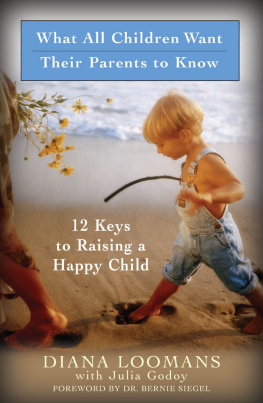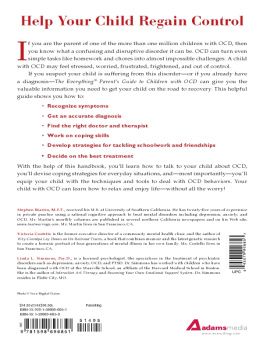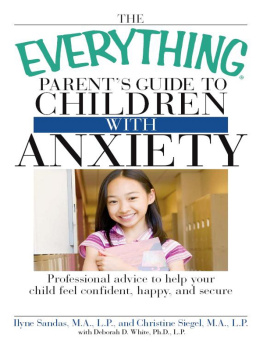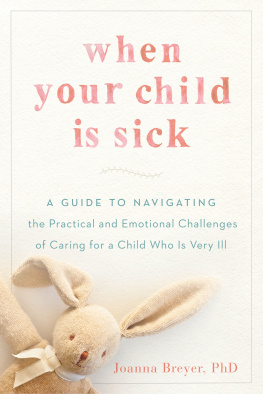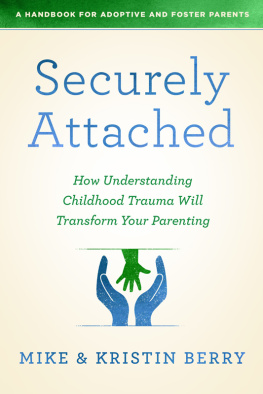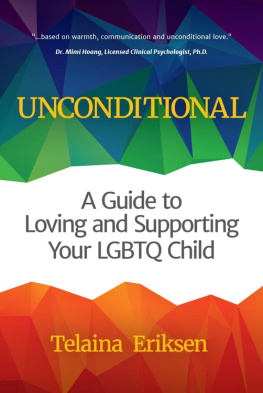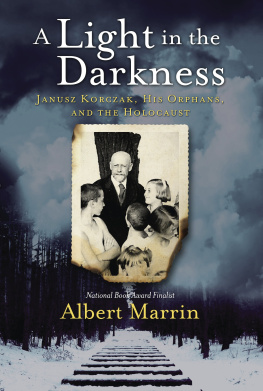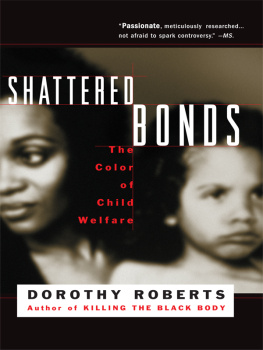Loving Every Child

Wisdom for Parents
The Words of Janusz Korczak
Edited by Sandra Joseph
Foreword by Ari L. Goldman
ALGONQUIN BOOKS OF CHAPEL HILL 2007
This book is dedicated to children everywhere, especially Elle, Sky, and Luca.
Thank you for your gifts of love and laughter.

CONTENTS

FOREWORD
by Ari L. Goldman
I was a very nervous new father. I didnt know how often to pick up my son, how hard to pat his back to burp him, or whether it was okay to let him cry. There were so many things. How do you know what to do?
My friend Lorraine, a wise woman who had raised many children and grandchildren, sensed my anxiety and, to calm me down, quoted Janusz Korczak. Just listen to your son, Lorraine said. Hell teach you how to be a father.
Two decades and three children later, I still marvel at that simple wisdom. Simply put, my kids taught me to be a father. All I had to do was listen.
When is the proper time for a child to start walking? Korczak asks in these pages. When she does. When should her teeth start cutting? When they do. How many hours should a baby sleep? As long as she needs to.
Of course, Korczak realized that sometimes you need experts. He was not dismissing the advice of every doctor, writer, and educator. After all, he was all these things himself. But he believed that we as parents and as children have so much inherent knowledge; we must learn to trust ourselves.
No book and no doctor is a substitute for ones own sensitive contemplation and careful observations, he writes. Books, he adds, can be of small additional value, but no more.
I would add that in Korczaks estimation, the smaller the book, the greater the value.
The little volume you are holding in your hands can change your life as a parent. It can rescue you not only from the experts but also from over-medicating and overevaluating and over-obsessing about your child. It might also help you strip away the earphones, the remotes, and the computers. What children really need is someone to listen to them.
How do you listen? Ive struggled with this question both as a parent and as a journalist. Early in my career, I was an education reporter for a major American newspaper. I often went into schools to report. Im pretty good at getting people to open up, but I could never get schoolchildren to talk to me.
Korczak had some good advice. The child is small, lightweight, and there is just less of him, he writes. Imagine, he suggests, what we must look like to a small child. Were big; theyre tiny. Theres only one way to talk to them, he adds: We ought to stoop and come down to his level.
Things changed for me when I got down on my knees. Once on their level, I found I didnt even have to ask questions. I just listened. If youre there listening, children will talk.
Children, of course, value little things far more than they value us. Korczak helps us gaze into their pockets and cubbies to see their treasures: pieces of string, nails, pebbles, beads, bits of colored glass, birds feathers, pinecones, ribbons and bus ticketsas he puts it, cherished belongings and dreams of a wonderful life. Later he adds: Dogs, birds, butterflies, and flowers are equally close to his heart, and he feels kinship with each pebble and shell.
I shudder to think what Korczak would have thought of Game Boys.
Think about it. What would you rather find in your childrens pockets?
Korczak died at the hands of the Nazis in 1942. Until his dying moments he comforted the two hundred orphans he cared for in the infamous Warsaw Ghetto. If you dont know the story of Korczaks brilliant career and tragic death, you can read it in the final pages of this book.
But what I particularly like about this volume is that it takes Korczaks wisdom about children out of the context of martyrdom. Most people learn about him through exhibits at various museums commemorating the Holocaust. Korczak, of course, deserves a place there. But he especially deserves to be remembered for what he taught us about children and about ourselves.
ARI L. GOLDMAN, a former reporter for the New York Times, is a professor at the Columbia University Graduate School of Journalism. He is the author of The Search for God at Harvard and other books.
INTRODUCTION
I hope that after reading this book the English-speaking world will finally become familiar with Janusz Korczak (pronounced Korchok) and his work. Most of the quotations are taken from How to Love a Child and Respect for the Child, books Korczak wrote over fifty years ago. But his insights and simple truths concerning children are as fresh and valuable today as they were then, for he was a man years ahead of his time.
By fate I fell into the world of Dr. Janusz Korczak while studying psychotherapy. Both Bruno Bettelheim and Alice Miller, two of the worlds most famous child psychologists, had described Korczak as one of the greatest educators of all times and a true pedagogue. I tried to find out more about this man, especially his theories concerning education and child care. At libraries I came up empty. I asked teachers, social workers, therapists, and everyone I knew, but nobody had heard of him. Finally, by a strange set of coincidences, I was introduced to Felek Scharf, a Pole himself and an expert on Polish affairs, and one of the few living links to Korczak in the United Kingdom. Felek showed me two of Korczaks books that had been translated into English. One was the famous childrens book King Matt the First and the other was Ghetto Diary.
But what about his work on children? I asked. Felek shook his head sadly. Very little had been published in English. I left with two treasured books by Janusz KorczakHow to Love a Child and Respect for the Childbut they were written in Polish. I felt so frustrated. Slowly, the idea dawned on me that these books must be translated into English.
Once the translations were complete, I was amazed by what I read. Korczak did not theorize, or give ready-made answers, but presented the fruits of his experience in such a clear simple way. Almost like that of a child, direct but at the same time poetic, so that every reader could not help but be inspired.
I have shown Korczaks writings to parents, teachers, social workers, and anyone whose life is involved with the world of children. However, it was the young people I have counseled over the years, many of whom had experienced abuse and neglect, whose reactions have surprised me the most: If only my parents had read Korczak, they could have seen things from my point of view. Instead of feeling so isolated and misjudged, I could have quoted his words back to them. Maybe then they would have understood me. Korczak had always stressed the importance of learning from the child but, beyond that, he emphasized the importance of bestowing upon children the same rights we allocate to adults.
Korczak spoke of the need for a Declaration of Childrens Rights, long before the one adopted by the League of Nations in 1924. In 1959, the United Nations produced its famous Universal Declaration of Human Rights, and not long afterward, a second Declaration on the Rights of the Child (November 20, 1959). This was a step forward for childrens rights, but as a declaration this new set of principles was not legally binding and did not carry a procedure to ensure its implementation.


